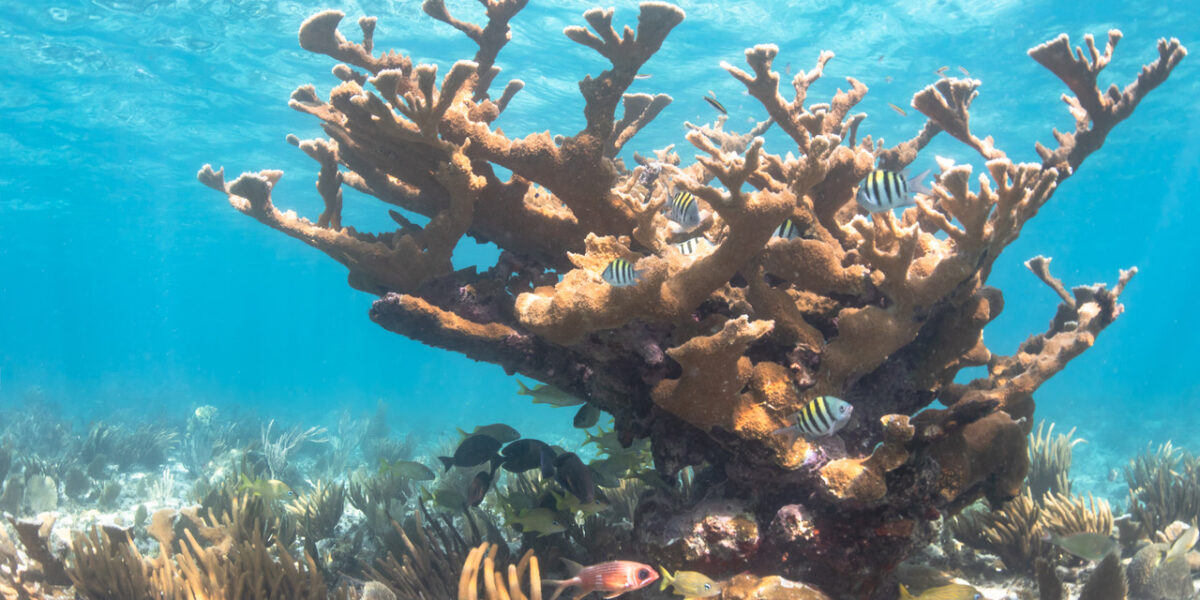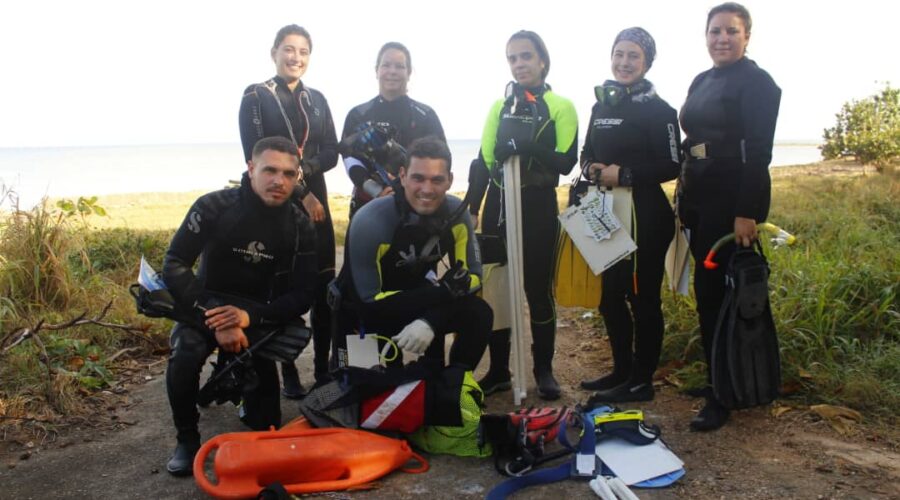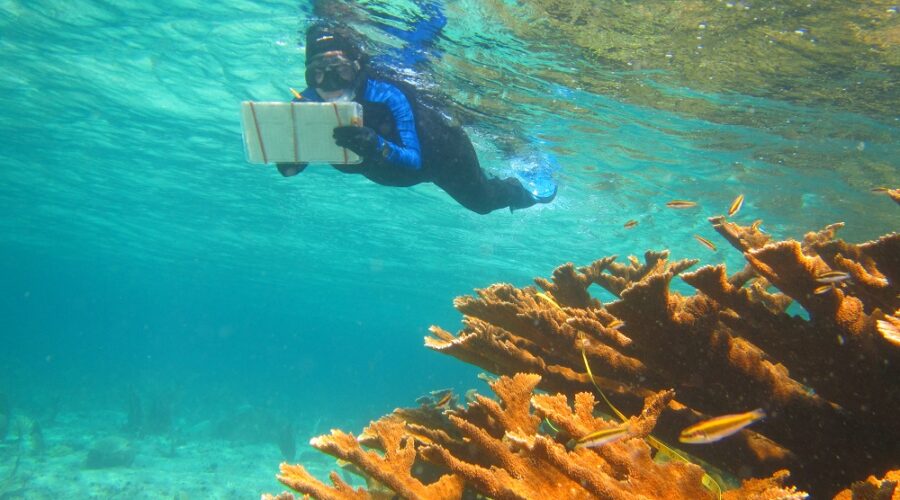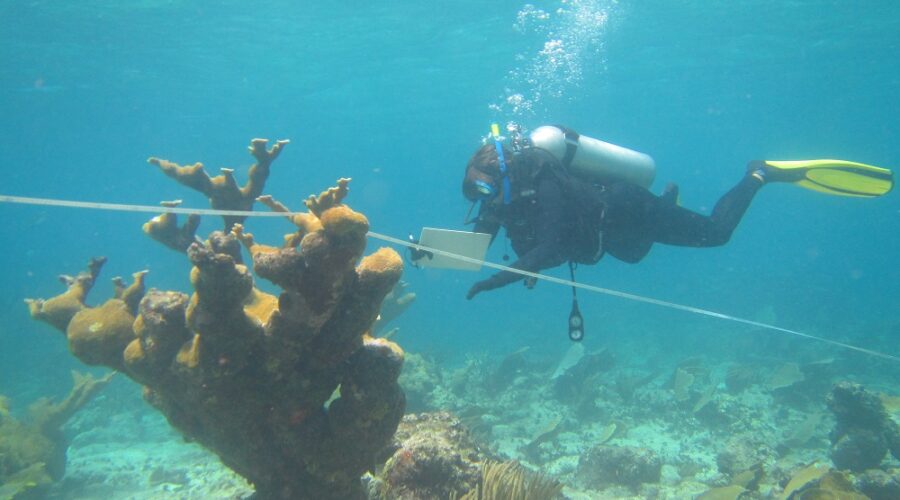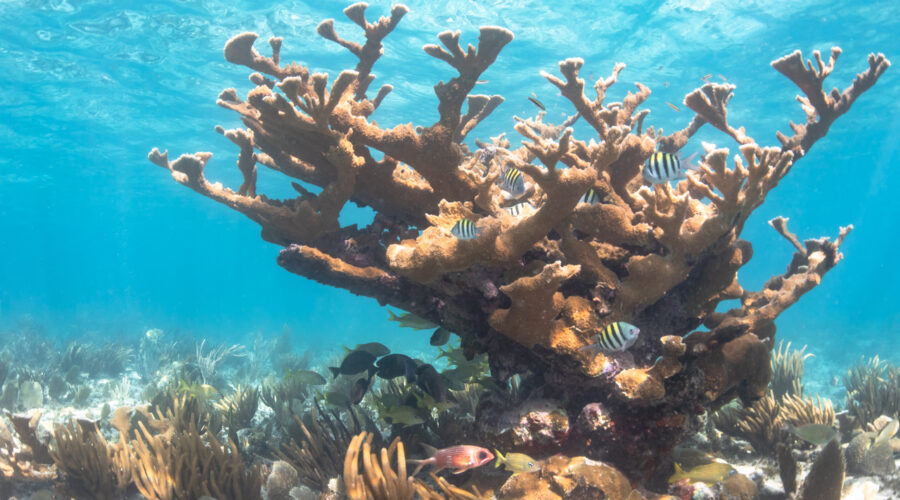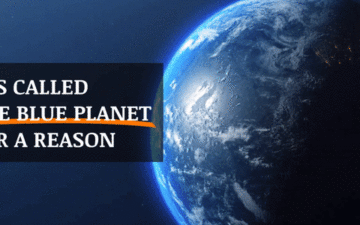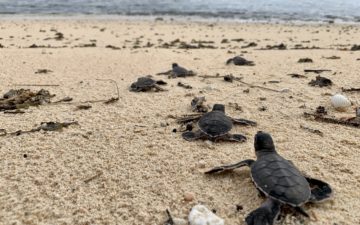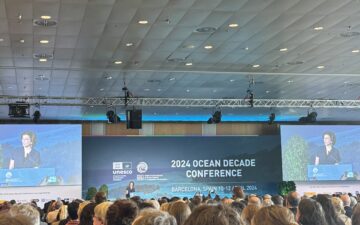The COVID-19 pandemic has put a strain on almost every imaginable human activity. Marine research has been curtailed more than any other, as underwater science requires travel, planning, and close proximity in research vessels to get to study sites. In January 2021, the Center for Marine Research of the University of Havana (“CIM-UH”) defied all odds by kickstarting their two-decade effort to study elkhorn coral at two sites off the coast of Havana: Rincón de Guanabo and Baracoa. This most recent expedition was done through will and ingenuity, and a focus on land-based departures to coral research sites, which can be done deliberately and while ensuring proper spacing of scientists. Throw in the fact that the coronavirus cannot be spread underwater!
Throughout this project, a group of Cuban scientists led by Dr. Patricia Gonzalez of the University of Havana will conduct a visual census of elkhorn patches in these two sites off the coast of Havana and evaluate the health and density of corals, substrate coverage, and presence of fish and predator communities. The project is supported by The Ocean Foundation with funds from Paul M. Angell Family Foundation.
Reef ridges are valuable habitats within coral reefs. These ridges are responsible for the three-dimensionality of the reef, provide shelter for all organisms of commercial value such as fish and lobsters, and protect the coasts from extreme weather events such as cyclones and hurricanes. In Havana, Cuba, Rincón de Guanabo and Baracoa are two reef ridges on the margins of the city, and Rincón de Guanabo is a protected area with the category of Outstanding Natural Landscape. Knowing the state of health of the ridges and their ecological values will make it possible to recommend management and conservation measures that will contribute to their future protection.
With the general objective of evaluating the health of the reef crests of Rincón de Guanabo and Baracoa, a survey was carried out during January, February, and March by a group of Cuban scientists led by Dr. Gonzalez. The specific objectives of this research are the following:
- To assess the density, health and size composition of A. palmata (elkhorn coral), A. agaricites and P. astreoides.
- To estimate density, size composition, stage (juvenile or adult), aggregation and albinism in D. antillarum (a long black-spined urchin that experienced a massive die-off in the Caribbean in the 1980’s and is one of the main herbivores of the reef).
- To evaluate the species composition, developmental stage, and behavior of herbivorous fish, and to estimate the size of each of the selected ridges.
- Evaluate the substrate coverage for each of the selected ridges.
- Estimate the roughness of the substrate for each of the selected ridges.
Six surveying stations were established on each reef to account for the natural variability of each ridge. The results of this research will contribute to the PhD thesis of Amanda Ramos, as well as to the Master’s theses of Patricia Vicente and Gabriela Aguilera, and the diploma theses of Jennifer Suarez and Melisa Rodriguez. These surveys were carried out during the winter season and it will be important to repeat them in the summer due to the dynamics of the marine communities and the health of the corals change between seasons.
Knowing the state of health of the ridges and their ecological values will make it possible to recommend management and conservation measures that will contribute to their future protection.
Due to the COVID-19 pandemic, The Ocean Foundation unfortunately was not able to join these expeditions and support the research of these scientists in person, but we look forward to the progress of their work and learning their recommendations for conservation measures, as well as rejoining our partners in Cuba post-pandemic. The Ocean Foundation is also leading a larger effort to study and restore elkhorn and staghorn corals at Jardines de la Reina National Park, the largest marine protected area in the Caribbean. Unfortunately, this project is on hold as COVID-19 has prevented scientists in Cuba from working together on research vessels.
The Ocean Foundation and CIM-UH have collaborated for over two decades despite the difficult diplomatic relations between Cuba and the US. In the spirit of science diplomacy, our research institutions understand that the ocean knows no boundaries and studying ocean habitats in both countries is critical for their joint protection. This project is bringing together scientists from both countries to work together and find solutions to the common threats we face including coral disease and bleaching from climate change, overfishing, and tourism.
